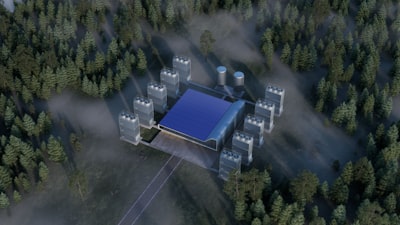Overview
A floating data center is a type of data storage and processing facility that is constructed on a floating platform, such as a barge or ship, rather than on land. This innovative approach leverages advancements in maritime engineering and information technology to offer flexible, scalable, and resilient infrastructure for digital services.
Design and Structure
Floating data centers are built on marine platforms, which can include retrofitted ships, barges, or specially constructed vessels. These platforms house data processing equipment, power supply units, cooling systems, and telecommunications infrastructure. Integration with maritime systems allows these facilities to be relocated as needed, either within a harbor or to different coastal locations.
Power and Cooling
Traditional land-based data centers consume significant amounts of electricity and water for cooling. Floating data centers can utilize the surrounding water for efficient heat dissipation through seawater cooling systems. Some designs include integration with dedicated powerships or floating power plants, which generate electricity using various sources, such as natural gas, renewable energy, or hybrid systems.
Advantages
Floating data centers offer several key benefits:
- Scalability: Facilities can be added or relocated based on demand.
- Energy Efficiency: Proximity to water allows for advanced cooling, reducing energy consumption.
- Disaster Recovery and Resilience: Mobility provides resilience in the event of natural disasters or land-based disruptions.
- Reduced Land Use: Offshore placement minimizes the need for valuable coastal or urban property.
Challenges
Despite their advantages, floating data centers face challenges, such as exposure to harsh maritime weather, cybersecurity risks associated with remote connectivity, potential environmental impacts, and compliance with international marine and data regulations.
Notable Developments
Innovations in this field include pilot projects by major technology companies, as well as collaborations between maritime and IT firms. The integration of dedicated powerships for floating data centers represents a significant step in making such facilities self-sufficient and sustainable.
Applications
Floating data centers have prospective applications in supporting cloud computing, content delivery networks, edge computing near coastal populations, disaster response, and enhancing global internet infrastructure in underserved regions.

Comments
No comments yet. Be the first to comment!